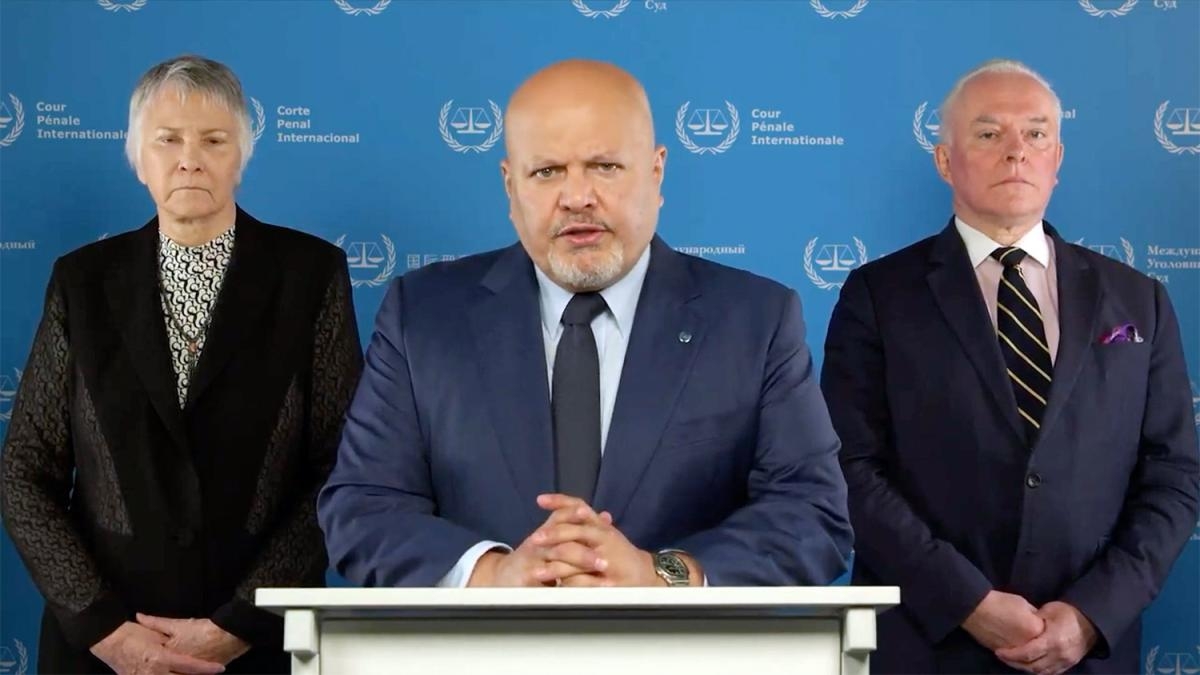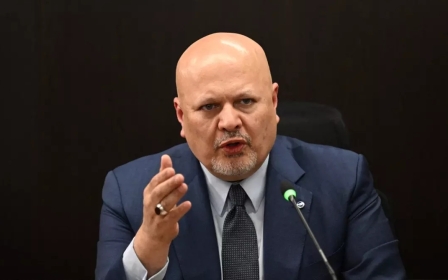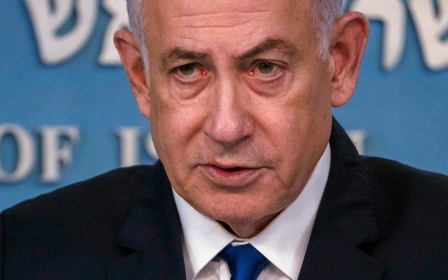Unpacking the ICC arrest warrant bids against Israeli and Hamas leaders

Israeli and Hamas leaders are facing a range of charges before the International Criminal Court (ICC) for their roles in alleged war crimes and crimes against humanity during Israel's war on Gaza and the 7 October Hamas-led attack on southern Israel.
On Monday, ICC prosecutor Karim Khan said he filed an application for arrest warrants for Israeli Prime Minister Benjamin Netanyahu and Defence Minister Yoav Gallant, as well as Hamas leaders Yahya Sinwar, Ismail Haniyeh and Mohammed Deif.
The application was based on evidence collected by the prosecutor during his visit to Israel, Ramallah in the occupied West Bank, and Egypt's Rafah on the border with Gaza. Khan, however, has not visited Gaza, as his requests to enter the enclave for investigation have been declined by the Israeli government.
The charges against both sides are pursuant to articles 7 on crimes against humanity and article 8 on war crimes of the Rome Statute that established the ICC, and all suspects are identified as “co-perpetrators” and “superiors” with criminal responsibility for the alleged crimes.
War crimes are committed in the context of international or non-international armed conflicts, while crimes against humanity might be perpetrated during war or peacetime. The prosecutor described the situation in Palestine and Israel as both an international armed conflict between Israel and Palestine as two states, and a non-international armed conflict between Israel and Hamas as a non-state actor.
New MEE newsletter: Jerusalem Dispatch
Sign up to get the latest insights and analysis on Israel-Palestine, alongside Turkey Unpacked and other MEE newsletters
In order to prove a crime against humanity, it must be committed knowingly as part of a widespread or systematic attack on a civilian population, according to article 7.
Charges against Israelis
According to the prosecutor, there are reasonable grounds to believe that Netanyahu and Gallant have criminal responsibility for the following crimes:
- Starvation of civilians as a method of warfare as a war crime
- Wilfully causing great suffering, or serious injury to body or health, or cruel treatment as a war crime
- Wilful killing or murder as a war crime
- Intentionally directing attacks against a civilian population as a war crime
- Extermination and/or murder, including in the context of deaths caused by starvation, as a crime against humanity
- Persecution as a crime against humanity
- Other inhumane acts as crimes against humanity
The evidence used to support the investigation include “interviews with survivors and eyewitnesses, authenticated video, photo and audio material, satellite imagery and statements from the alleged perpetrator group”.
The charges are mainly associated with the war crime of starvation of civilians as a method of warfare. This is connected to the total siege imposed by Israel since 7 October on the Gaza Strip, which involved the closure of crossings and “arbitrarily restricting the transfer of essential supplies - including food and medicine - through the border crossings after they were reopened”.
The prosecutor also noted Israel cut off cross-border clean water supplies to the Palestinians in Gaza, blocked humanitarian aid, and attacked civilians queuing for food and aid workers.
Khan said the evidence collected by his office “shows that Israel has intentionally and systematically deprived the civilian population in all parts of Gaza of objects indispensable to human survival”.
The prosecutor reiterated evidence from international aid groups that famine is present in some areas of the Gaza Strip while other areas are facing imminent famine.
Khan's submission relies on a report by a panel of international law experts commissioned by the prosecutor to assess the arrest warrant. According to the report, all of the charges seem to be linked with Israel’s siege policy since 7 October and the deprivation of items necessary for survival.
They do not, however, include the mass killing of civilians or the results of the bombing campaign that has so far killed more than 35,000 Palestinians, mostly women and children, and destroyed most of Gaza's infrastructure.
They also excluded the crime of genocide, currently being examined by the International Court of Justice in a case filed by South Africa against Israel in December.
The panel and the prosecutor, however, acknowledged that other crimes and Israel’s ongoing bombing campaign are currently being actively investigated by the ICC.
Charges against Palestinians
The prosecutor’s announcement names three Hamas leaders facing an arrest warrant, namely Sinwar, who leads the Palestinian movement in Gaza, Mohammed Diab Ibrahim al-Masri, the head of the group’s military wing, better known as Mohammed Deif, and its political bureau chief Ismail Haniyeh.
It then lists eight crimes faced by the trio, based on evidence collected and examined by the prosecutor’s office in connection with the killing of hundreds of Israeli civilians on 7 October and the taking of at least 245 captives.
The prosecutor said the Hamas leaders bear criminal responsibility for the following crimes:
- Extermination as a crime against humanity
- Murder as a crime against humanity and as a war crime
- Taking hostages as a war crime
- Rape and other acts of sexual violence as crimes against humanity and also as war crimes in the context of captivity
- Torture as a crime against humanity and also as a war crime in the context of captivity
- Other inhumane acts as a crime against humanity in the context of captivity
- Cruel treatment as a war crime in the context of captivity
- Outrages upon personal dignity as a war crime in the context of captivity.
The evidence used by the ICC includes interviews with victims and survivors, including former captives and eyewitnesses from six main affected locations in southern Israel: Kfar Aza, Holit, the location of the Supernova music festival, Beeri, Nir Oz, and Nahal Oz.
The investigation was also based on evidence collected from CCTV footage, verified audio, photo and video material, statements by Hamas members, and expert evidence, the prosecutor said.
Khan said that his office continues to investigate suspected crimes in Israel, Gaza and the West Bank, and that more arrest warrants could be issued in the future "if and when we consider that the threshold of a realistic prospect of conviction has been met."
Middle East Eye delivers independent and unrivalled coverage and analysis of the Middle East, North Africa and beyond. To learn more about republishing this content and the associated fees, please fill out this form. More about MEE can be found here.




